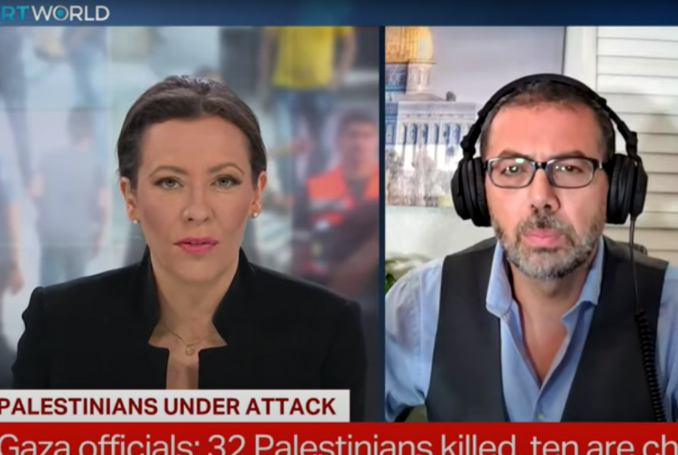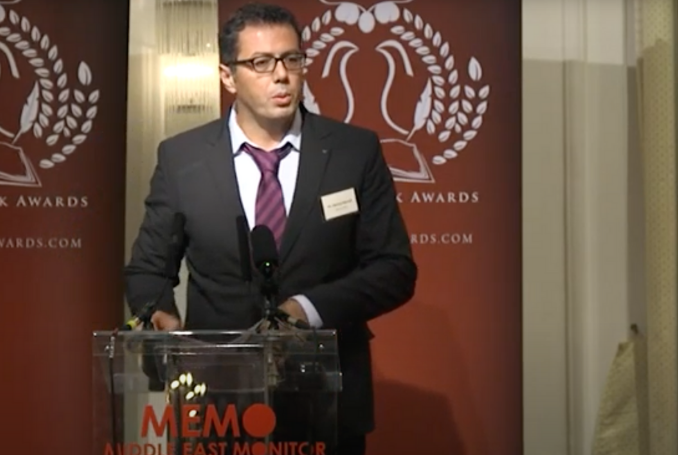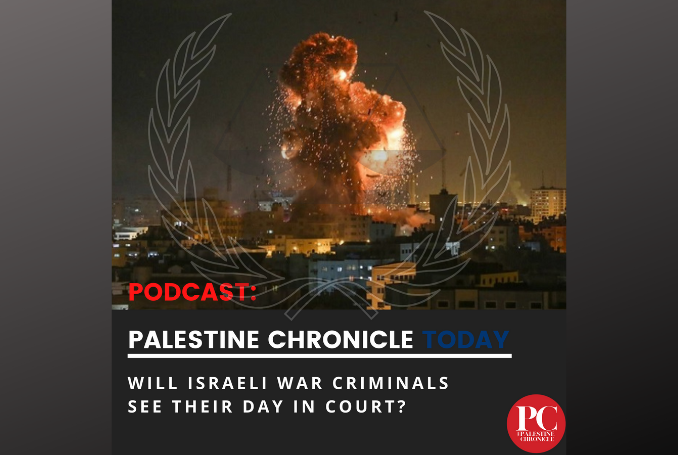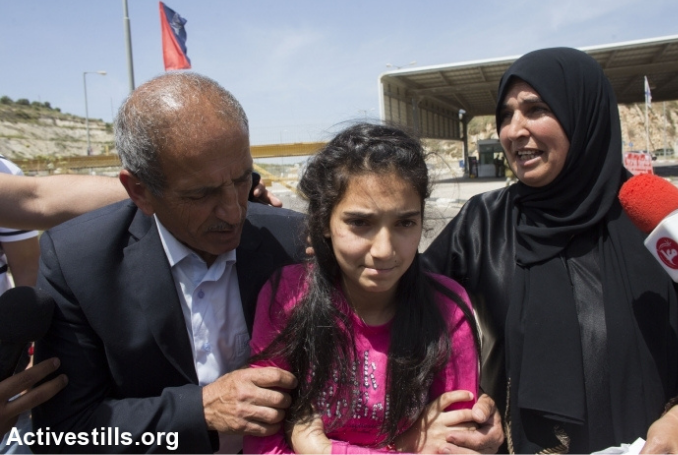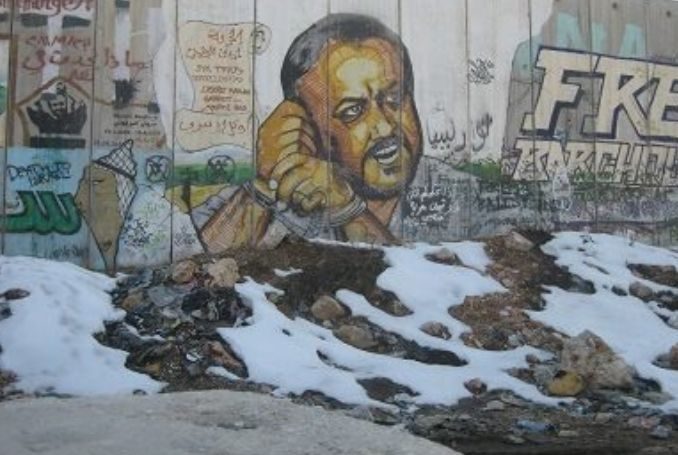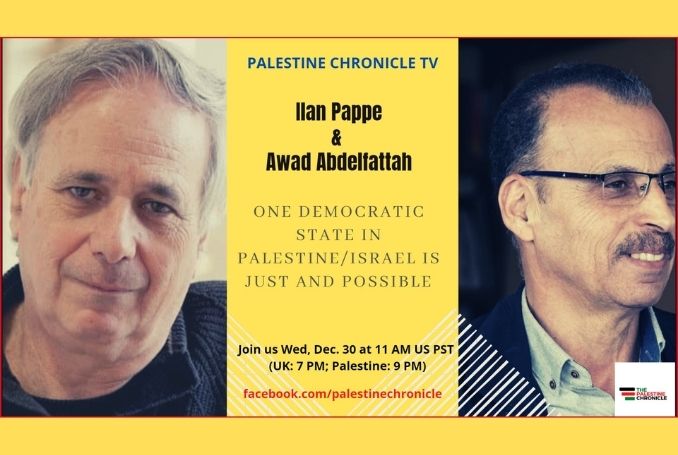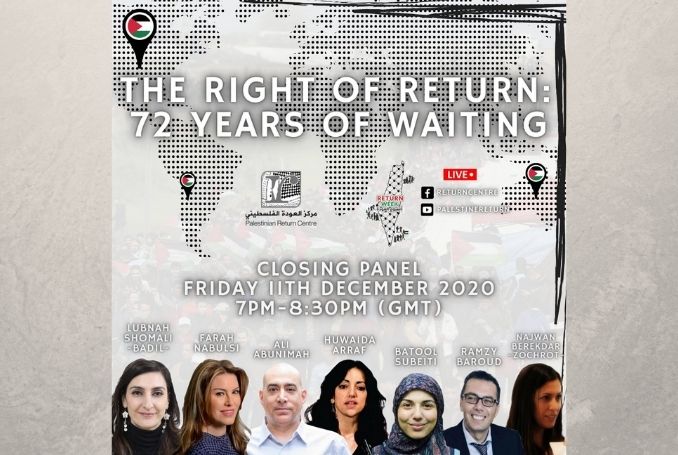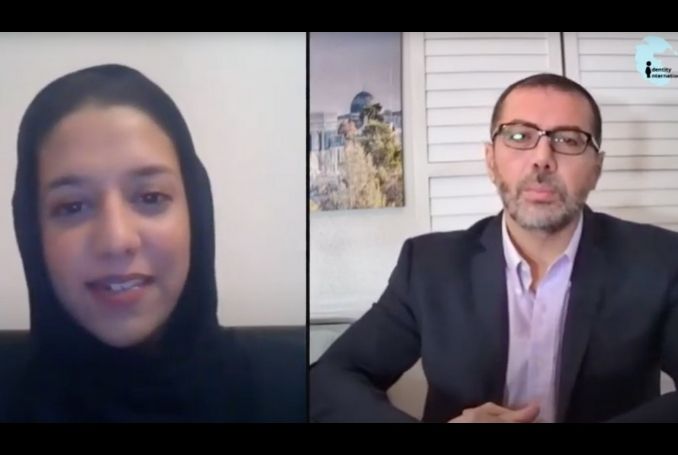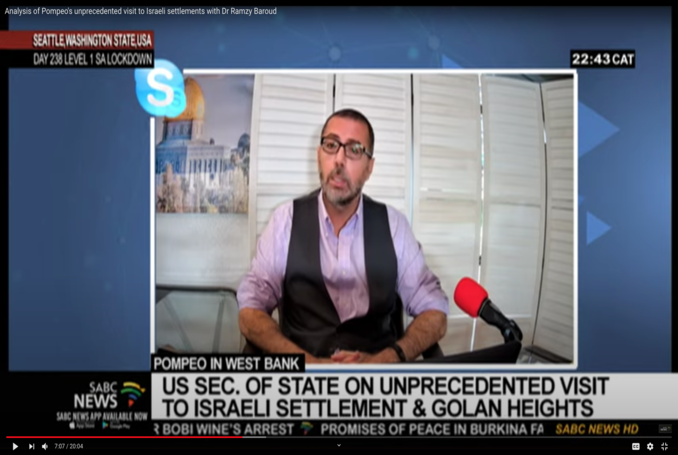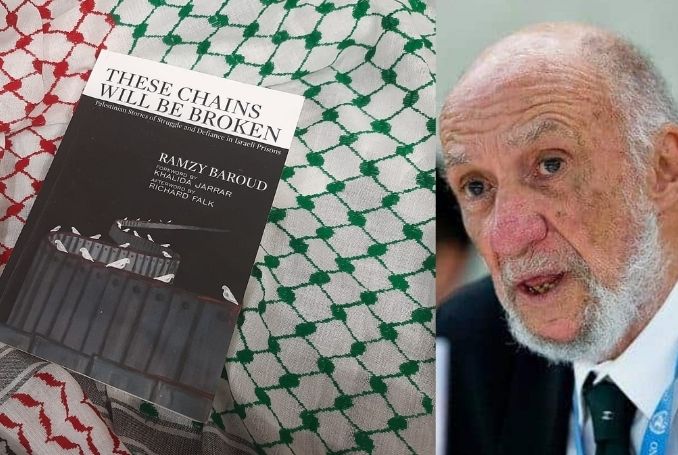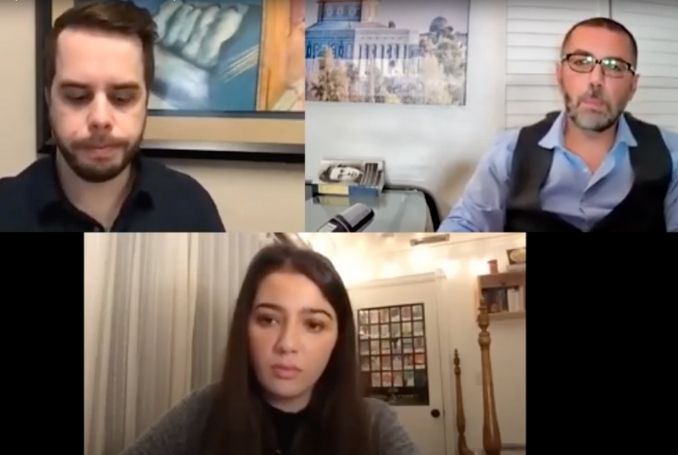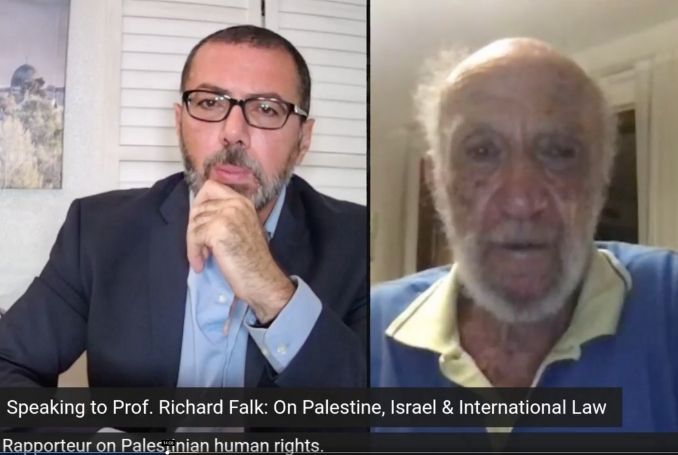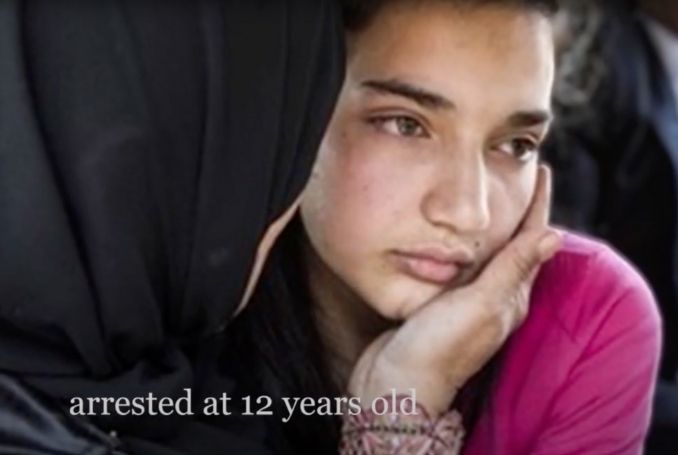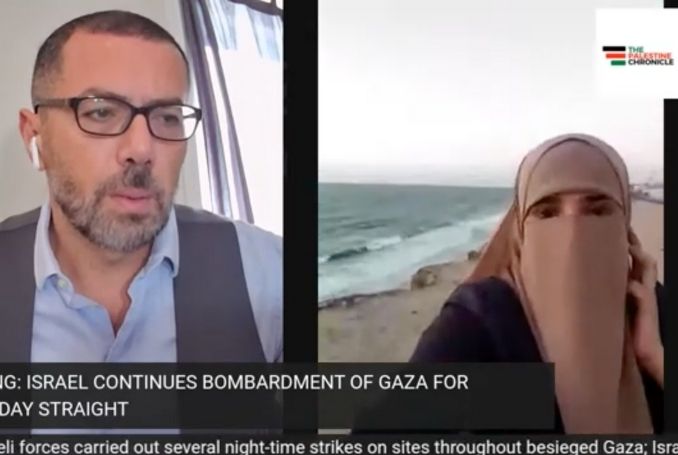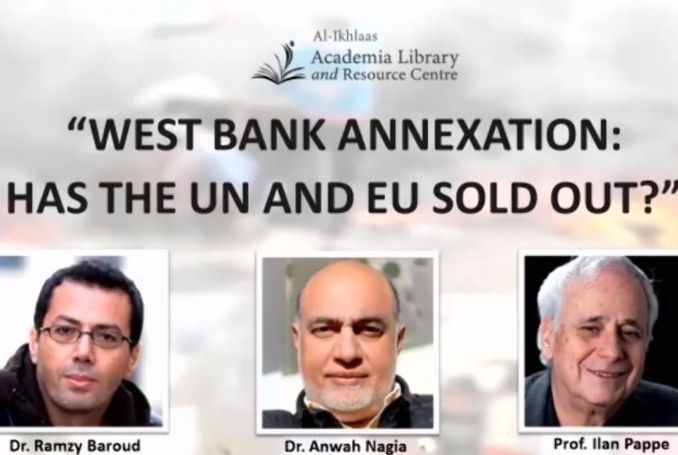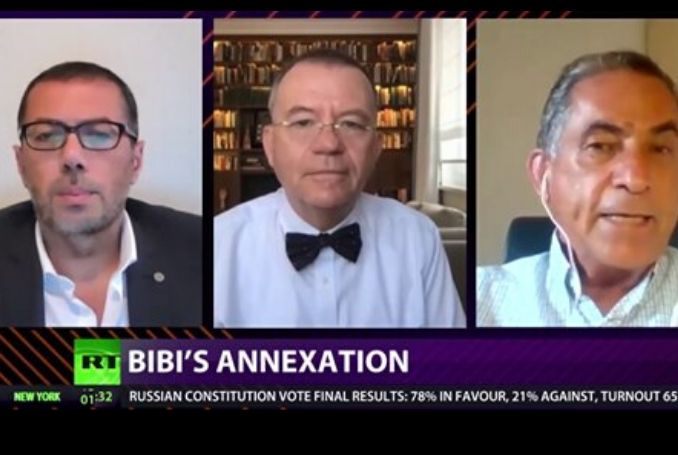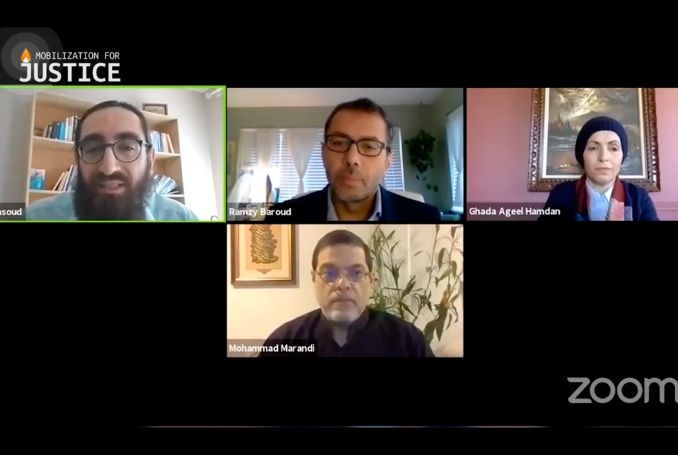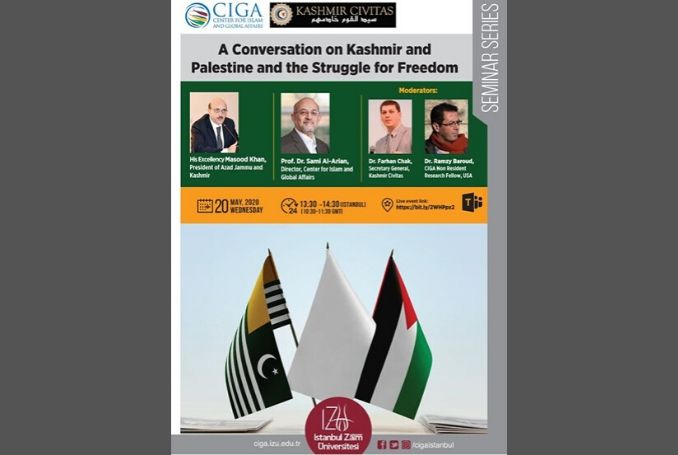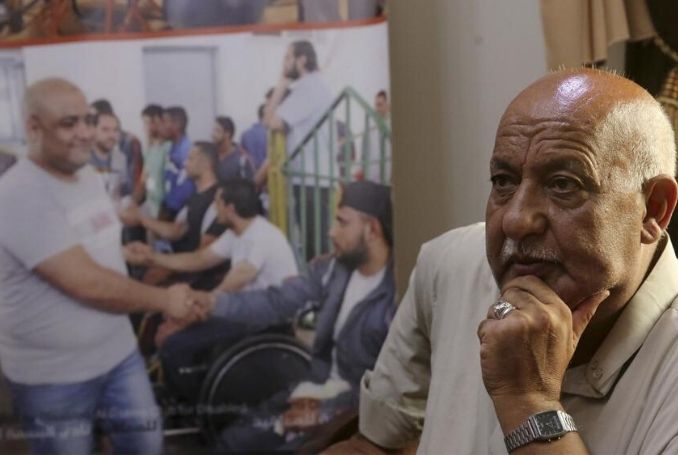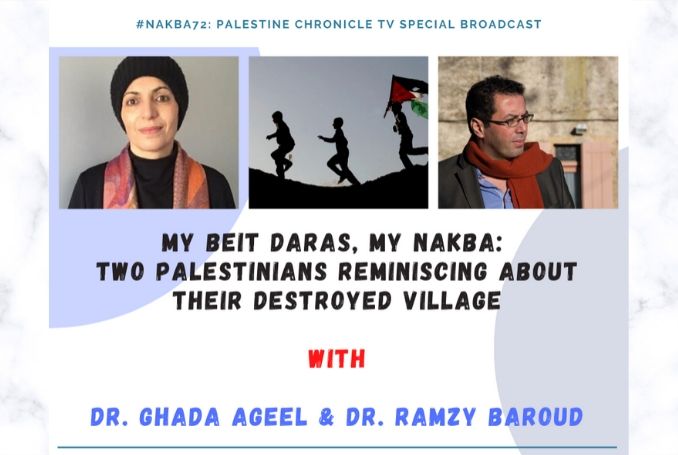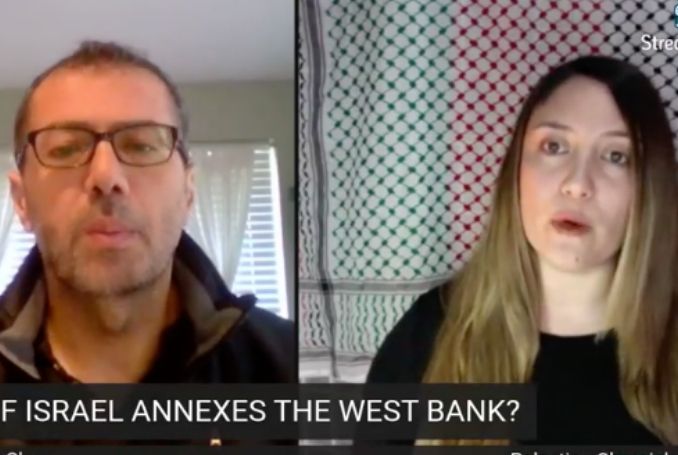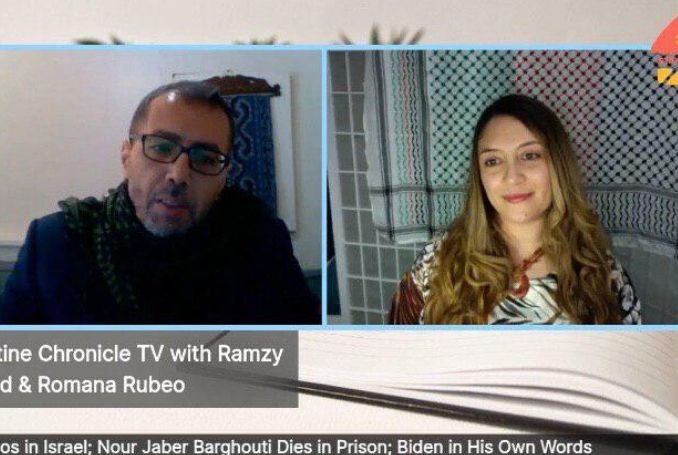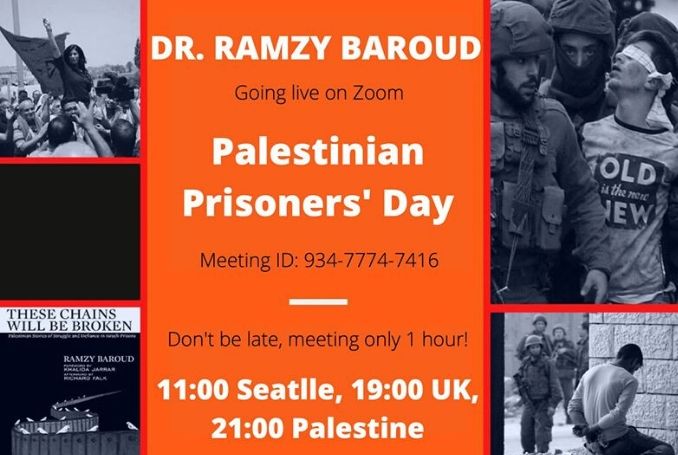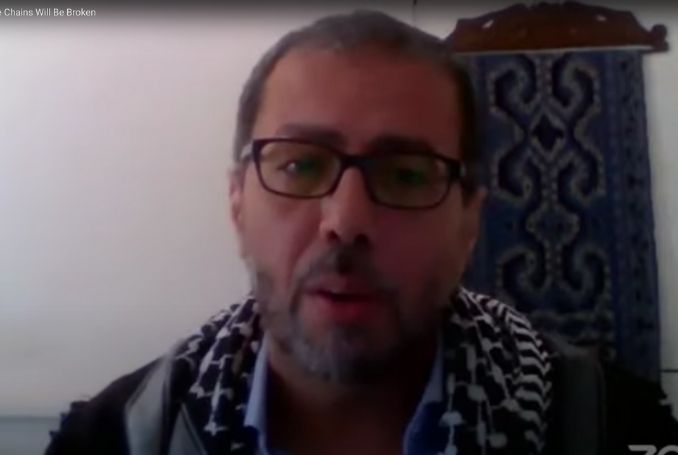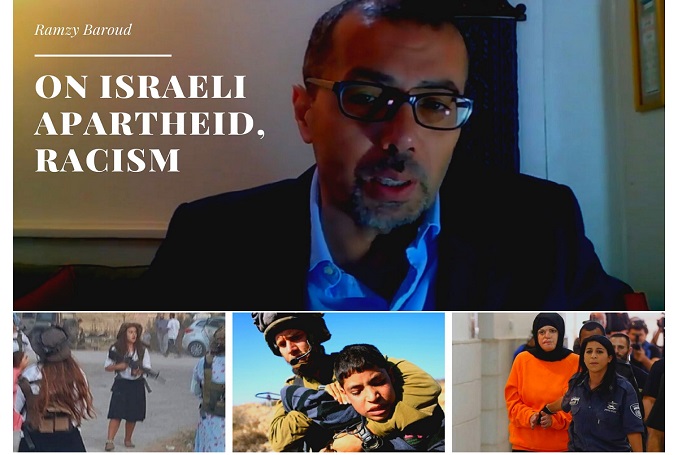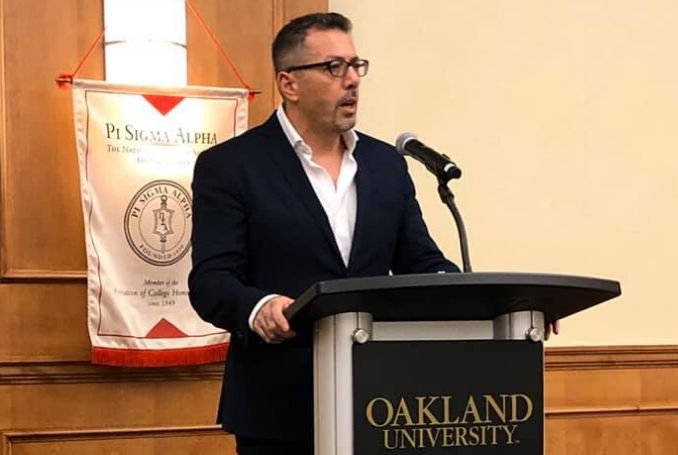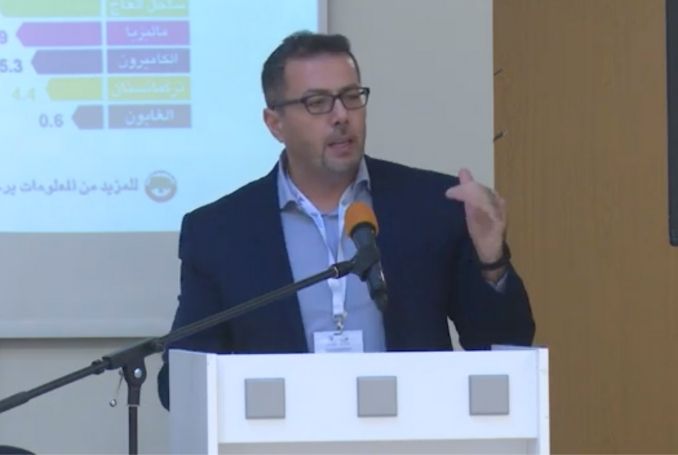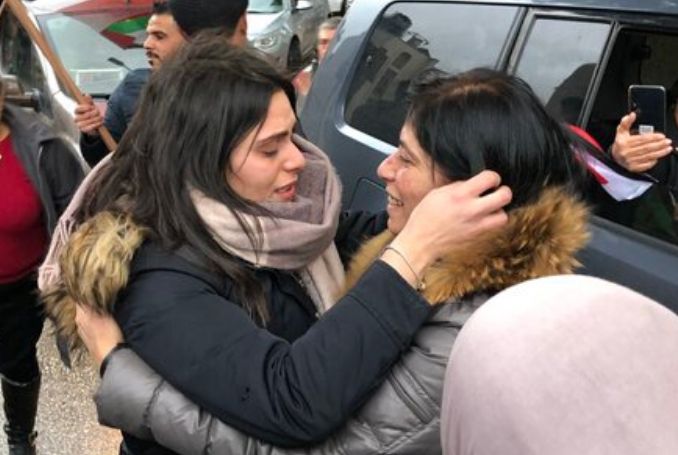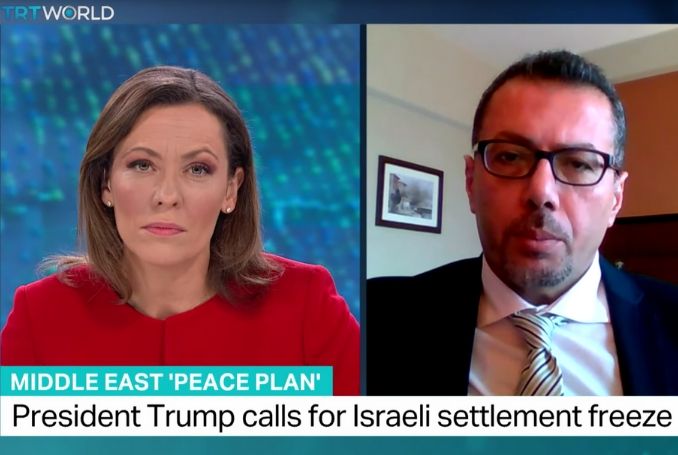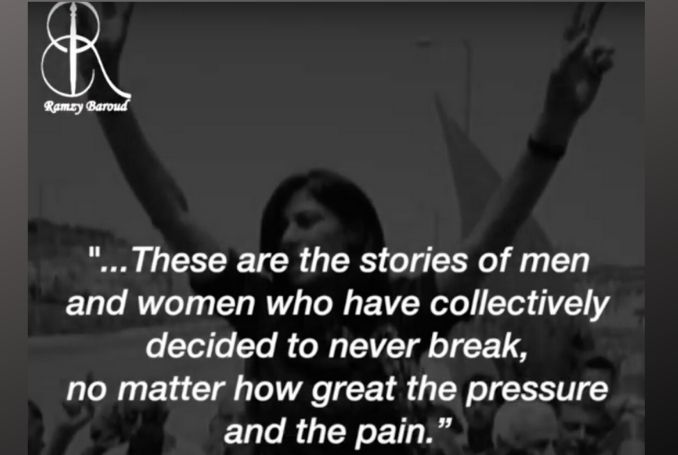- May 30, 2025
Ramzy Baroud News
Ramzy Baroud in TRT: Who Can Hold Israel Accountable? (VIDEO)
Palestine Chronicle editor Ramzy Baroud discusses Israel’s accountability for its crimes against Palestinians.
Ramzy Baroud’s Keynote Speech at the Palestine Book Awards in London (VIDEO)
Palestinian journalist and editor of The Palestine Chronicle, Dr. Ramzy Baroud, delivers the keynote speech at the Palestine Book Awards in London in 2018.
PODCAST: Palestine Chronicle Editors Interview International Law Expert on ICC War Crimes Investigation (LISTEN)
The half an hour podcast focused on the various scenarios awaiting the investigation and the possible Israeli response.
‘I Didn’t Do Anything’: Excerpts from Dima al Wawi’s Story (VIDEO)
On February 9, 2016, Dima was ‘arrested’ by an armed, illegal Jewish settler who claimed that the 12-year-old girl was trying to stab him. After weeks of interrogation by the Israeli army, a military court sentenced her to four and a half months in prison.
Not a Defeated People: On Baroud’s ‘These Chains Will Be Broken’
These are stories of people who create nurturing and supportive systems within the prison walls, as well as to their home communities and their nation. May we all achieve such strength of character.
WATCH: Palestine Chronicle Hosts: Ilan Pappe and Awad Abdelfattah on ‘One Democratic State’
Renowned historian, Professor Ilan Pappe and respected political analyst and leader Awad Abdelfattah speak to Palestine Chronicle TV about the One Democratic State Campaign and their shared vision for a just peace and coexistence in Israel and Palestine.
Palestinian Intellectuals Discuss ‘Right of Return’ in a London Conference (VIDEO)
The webinar ‘The Right of Return: 72 Years of Waiting’, featured Huwaida Arraf, Ali Abunimah, Farah Nabulsi, Lubnah Shomali, Najwan Berekdar, and Ramzy Baroud.
WATCH: ‘Palestinian: Beyond Conflict’ – Featuring Ramzy Baroud (Identity International)
Ramzy Baroud discusses the complexities of Palestinian identity in today’s world with Misbah Khan from Identity International, in Episode 1 of ‘Palestinian: Beyond Conflict’.
WATCH: Ramzy Baroud on Pompeo’s Designation of BDS as ‘Antisemitic’
Ramzy Baroud speaks about Pompeo’s visit to illegal Jewish settlement ad his designation of BDS as antisemitic.
Prof. Richard Falk: I Strongly Recommend Ramzy Baroud’s Book on Palestinian Prisoners
Let me strongly recommend Ramzy Baroud’s book, which really gives an insight into the torment of the prisoners and their struggle for dignity and how important they are as symbols of the most prolonged resistance to an unjust political situation in modern times.
RCF: Ramzy and Zarefah Baroud on Gaza’s History of Resistance (WATCH)
The discussion will touch on the stories of real Palestinians who have paid a high price for their resistance, in all of its forms.
Speaking to Prof. Richard Falk: On Palestine, Israel and International Law (PC TV)
Palestine Chronicle TV hosted Professor Emeritus of International Law Richard Falk. Professor Falk, an acclaimed author, was also the United Nations Special Rapporteur on Palestinian human rights between 2008-14.
VIDEO: ‘These Chains Will Be Broken’: Delving into the Heart of Palestinian Resistance
Watch this compelling video, share it, and obtain the book. There is a whole new Palestine waiting to be told.
WATCH: Ramzy Baroud and Wafaa Aludaini (LIVE FROM GAZA)
Palestine Chronicle editor Ramzy Baroud talks to Wafaa Aludaini in Gaza and Romana Rubeo in Rome about the latest Israeli violence in the besieged Gaza Strip.
WATCH: Pappe, Baroud, Nagia on Annexation, Apartheid
Israeli historian, Professor Ilan Pappe, Palestinian author and journalist, Dr. Ramzy Baroud, and South African intellectual, Dr. Anwah Nagia, talk annexation, apartheid and one state in this must-watch webinar, hosted by the Al-Ikhlass Academia Library in Cape Town.
RT: Crosstalking with Gideon Levy and Ramzy Baroud (VIDEO)
Peter Lavelle discusses why Israel is doing this, the international reaction, and the fate of the Palestinians with Israeli Haaretz columnist Gideon Levy and Palestinian journalist and author Ramzy Baroud.
Quds Day: Is The Palestine Question Complex or Complexified? (VIDEO)
This video has been recorded from a forum that discussed why Palestine is often referred to as a complex question, problem, or issue that needs a solution.
A Conversation on Kashmir and Palestine and the Struggle for Freedom (VIDEO)
Kashmiris and Palestinians need ‘unity of purpose’ to succeed in their common struggle, experts, and advocates speaking at a video conference said on Wednesday.
Free My Son, The Humanitarian Hero: Father of Mohammed Al-Halaby Speaks out (Palestine Chronicle TV)
Mohammed’s father, Khalil Al-Halaby, joined Ramzy Baroud on Palestine Chronicle TV, on May 20, to speak about his son’s ordeal.
My Beit Daras, My Nakba: Two Palestinian Intellectuals Reminiscing about Their Destroyed Village (VIDEO)
Dr. Ghada Ageel and Dr. Ramzy Baroud have more in common than their scholarly research on Palestinian history and politics. They are both refugees, and the direct descendants of Palestinian refugees who have been expelled from their historic village of Beit Daras at gunpoint during the catastrophic events that led to the Palestinian Nakba of […]
West Bank Annexation, Orientalism and More (PALESTINE CHRONICLE TV)
Join our editors Ramzy Baroud and Romana Rubeo as they discuss the topics of the week in the latest episode of Palestine Chronicle TV.
Palestine Chronicle TV: Israeli Politics, Death of Nour Barghouti and More
Join our editors Ramzy Baroud and Romana Rubeo as they discuss the topics of the week in the latest episode of Palestine Chronicle TV.
WEBINAR: On Palestinian Prisoners’ Day, Ramzy Baroud Discusses His New Book
In commemoration of 2020 Palestinian Prisoners’ Day, Palestinian journalist and editor of the Palestine Chronicle Ramzy Baroud discusses his new book.
On Palestinian Prisoners’ Day, Ramzy Baroud Discusses His New Book on Prisoners
In honor of Palestinian Prisoners Day, Palestinian journalist and editor of the Palestine Chronicle Ramzy Baroud discusses his new book.
VIDEO: Ramzy Baroud on Israeli Racism, Apartheid and the Palestinian Narrative (Part I & II)
This talk, by Palestinian author, journalist and editor, Dr. Ramzy Baroud, was scheduled to be delivered in person at the University of Torino, Italy on March 25, during the ‘Israeli Apartheid Week’.
Author Ramzy Baroud Shares Personal Experience as a Palestinian Refugee
Due to their marginalization, Baroud claims that the way Palestinians tell their stories has become twisted. This is partly due to most Palestinians having to explain what they are not rather than what they are.
Video: Baroud Speaks at the Workshop ‘Palestinians in Diaspora between Theory and Practice’ in Istanbul (Arabic)
Palestinian author, journalist and Palestine Chronicle Editor, Ramzy Baroud delivers a speech in Arabic at the workshop: Palestinians in Diaspora between Theory and Practice: Role, Representation, and Challenges, in Istanbul, on February 1.
These Chains Will Be Broken. Palestinian Stories of Struggle and Defiance in Israeli Prisons – Book Review
By Ramona Wadi (These Chains Will be Broken: Stories of Struggle and Defiance in Israeli Prisons, Clarity Press, Atlanta, 2019) What the news reports eliminate, Ramzy Baroud’s new book, These Chains Will be Broken: Stories of Struggle and Defiance in Israeli Prisons, pushes to the fore. Palestinian prisoners, misrepresented through statistics, news reports, exploitation and glorification, […]
Baroud to TRT: ‘Time to Create a Unified Palestinian Political Front’ (VIDEO)
In this TRT interview, Ramzy Baroud, Palestinian journalist, author and editor of The Palestine Chronicle, discusses the need for a unified political strategy following Washington’s declaration of the ‘Deal of the Century’.
‘These Chains Will Be Broken’: Make 2020 the Year of Solidarity with Palestinian Prisoners
Friends, it is finally here. “THESE CHAINS WILL BE BROKEN: Palestinian Stories of Struggle and Defiance in Israeli Prisons” is the story of Palestine written by its foremost heroes and heroines, the true organic intellectuals of this noble struggle. Listening to Khalida Jarrar, Dareen Tatour and Mohammed al-Deirwai conveying their stories, and reading the words […]


